Learning @ Home
What can parents do every day to support learning?
Here are some simple suggestions which you might like to try at home - things you can do every day which will help to continue learning. Whilst there are many websites and useful online resources, it is still important that we continue to encourage our children (and adults) to maintain a healthy balance of screen time.
- You may have grandparents, family members, friends and neighbours who you haven't spoken to in a while. Technology means they are only a phone call or video link away, and this is a great time to get to know them better. What was life like for them growing up? How has life changed? Get them to share photos and tell you some stories. Maybe you can write about them and share your learning with others.
- Reading is at the heart of learning. If you have some books available, encourage your children to read every day, or read to them and talk about the story.
- Understanding of numbers is another very important part of children’s learning. Encourage them to practice times tables and number facts. Remember to give them practical examples and physical objects to work with, particularly if they are at an early stage of learning.
- Telling the time is an important life skill. Can you support your children to tell the time using an analogue and digital clock?
- Children often find units of measurement difficult (e.g. litres, millilitres, grams, kilograms etc.) because they have limited practical experience of these. The additional time at home is a great opportunity to involve them in cooking! As well as measuring things out, get them to estimate how many millilitres there are in a can or jar, or how much pasta or rice is in a bag. These real life experiences will make a difference when we get back to learning in schools.
- Learning a language is a great way to spend your time and something families can do together. Download the Duolingo app and set yourself a daily challenge to spend time learning a new language.
- Singing has been shown to improve our sense of happiness and well-being and it is something that families can enjoy doing together. Ask your children to sing or teach you some of their favourite songs. Perhaps you could teach your children some of the songs that you used to sing when you were at school? If you have an instrument at home - even better!
Websites you can visit
In order to continue your learning at home, here are some websites which you can visit at any time:
|
Lots of reading, writing and maths activities (and a great way to continue learning phonics through Read, Write Inc) |
|
| The BBC provides a huge range of learning resources and activities. | |
|
|
This is a great resource for learning spelling, which has been made free during school closures. You will need the Username: Free and the Password: Free (You can also download the app). Thanks, Sir Linkalot! |
| A website packed with great games and activities to support learning. | |
|
Another website with lots of content for learning online. |
|
|
The Children’s University has lots of great learning content, particularly if you are interested in science. |
